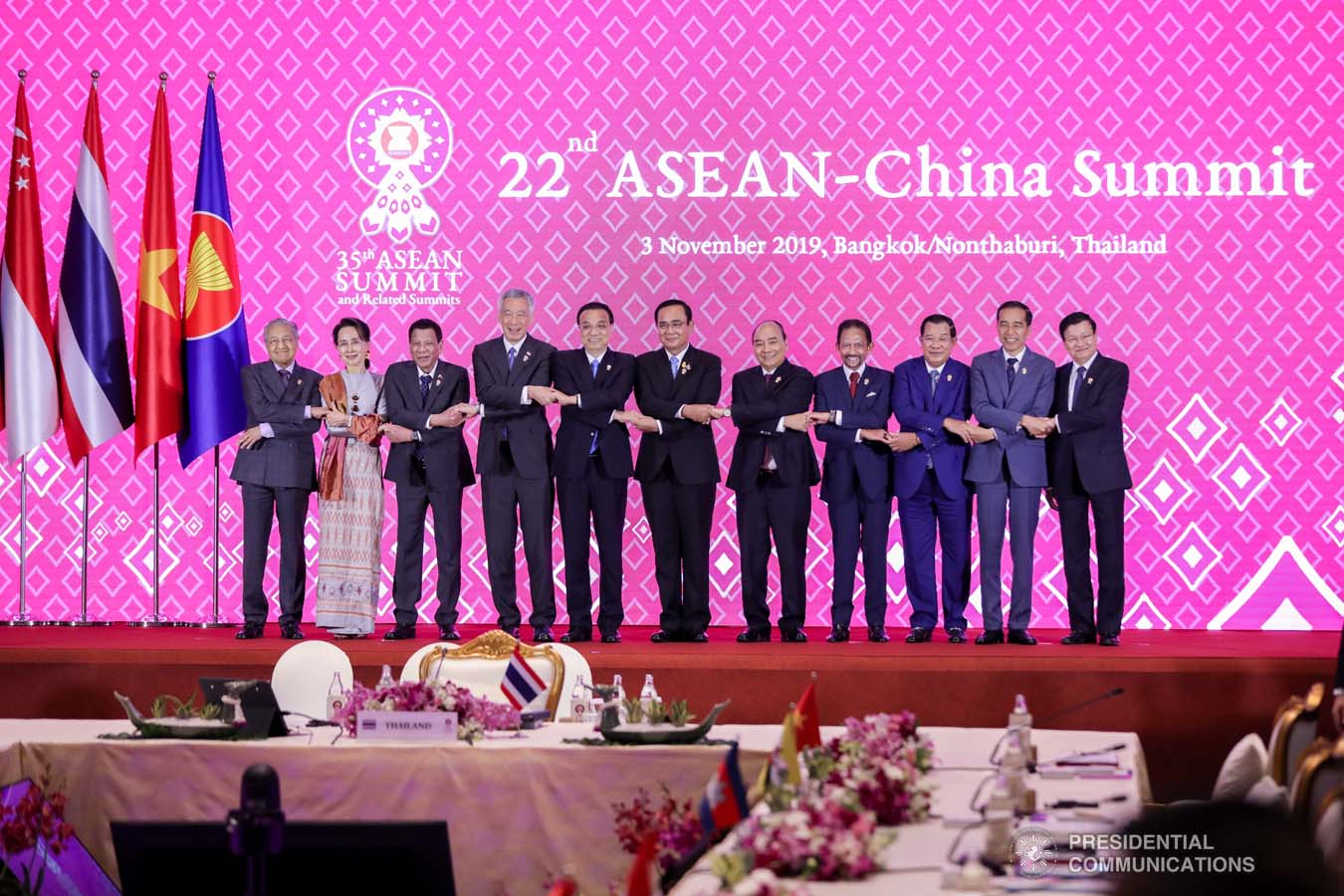
MANILA — President Rodrigo Duterte and his nine fellow Association of Southeast Asian Nation (Asean) leaders are “very concerned” about the long-standing disputes in the resource-rich South China Sea, Malacañang said Sunday.
Presidential Spokesperson Salvador Panelo said Duterte and other Southeast Asian leaders have agreed to have a unity against “common enemies,” which include the problems in the contested South China Sea.
“All the Asean countries have one thing in common. First, all of them wanted to unite against common enemies. And they are all in one to cooperate in the same concern,” Panelo said in a media interview in Nonthaburi, Thailand.
“More particularly, I think, from what I observe is they are very concerned of what is happening in the South China Sea,” he added.
In his intervention during the 22nd Asean-China Summit on Sunday, the President reiterated his call for all South China Sea claimants, including Beijing, to avoid any actions that may complicate the situation in the strategic waterway.
Duterte also renewed his call for the conclusion of the negotiations for the implementation of an “effective and substantive” code of conduct (COC) in the South China Sea.
“True to its name and nature, we aspire to have a Code that would guide the behavior of states on activities in the South China Sea, in accordance with international law, including the 1982 United Nations Convention on the Law of the Sea,” the President said.
Asean and China have been working on a COC in the hope of putting an end to hostilities in the South China Sea, which remains under dispute among four Asean member-states, Beijing, and Taiwan.
The Philippines, Brunei, Malaysia, and Vietnam are the four Asean member-states that are claiming parts of the South China Sea’s vast waters believed to be rich in oil and gas deposits.
Meantime, China and Taiwan are claiming almost the entire features of the busy waterway.
The proposed COC in the South China Sea, which might take three years to be implemented, is a legally binding pact that aims to promote peace and stability in the hotly-contested waters.
Panelo said the President’s views accorded well with those of Chinese Premier Li Keqiang who expressed China’s commitment to work with the Asean leaders for long-term peace and stability in the contested waters.
“I think countries are appreciative that China is open to a code of conduct. You must remember that China believes that the entire seas around it are theirs. Hence, they want to control it. The fact alone that it’s opening itself to have a code of conduct where you will be observing certain rules that will be useful in preventing conflict is good enough,” the Palace official said.
“They want an effective and substantive Code of Conduct that will provide regional stability, as well as peace,” he added.
Self-restraint
Amid talks on the sea code, Duterte said sea claimants remain committed to the “full and effective” implementation of the non-binding Declaration on the Code of Parties in the South China Sea (DOC).
The DOC, signed by 10 Asean member-states and China on Nov. 4, 2002, is aimed at exercising self-restraint and to prevent militarization within the South China Sea.
The President emphasized that land reclamation, military buildup and paramilitary actions “erode trust and confidence” among concerned parties and “exacerbate tensions” in the disputed sea.
Duterte’s fellow Asean leaders agreed with him that all claimants in South China Sea should maintain their observance of self-restraint, Panelo said.
“All countries have asked everyone to observe self-restraint to avoid any activity that could lead to more friction and even armed hostilities between and among countries in the region,” he said.
On July 12, 2016, the Philippines won before the Permanent Court of Arbitration in the Hague, Netherlands, after the arbitral court ruled that China’s “nine-dash” claim covering almost the entire South China Sea was invalid.
Despite Manila’s historic victory, the President has opted to resolve the sea disputes through diplomatic negotiations.